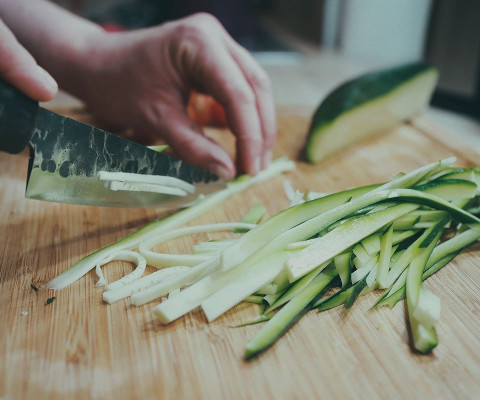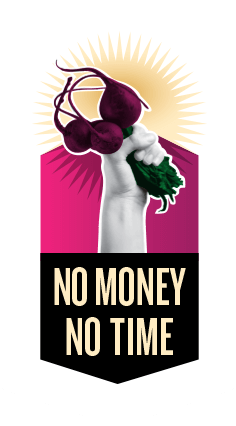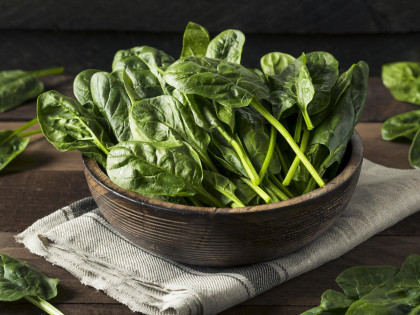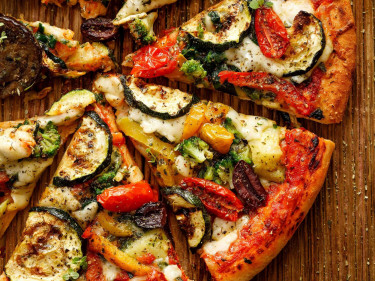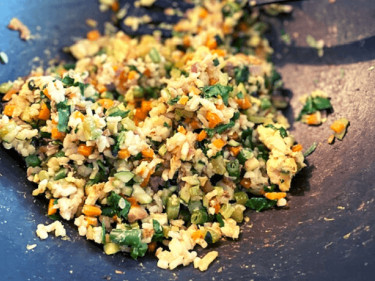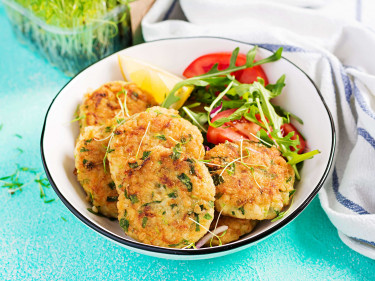Serves = 2
1 cup cooked brown rice
1x 400g can chickpeas, drained & rinsed
1 medium eggplant, diced
1 red capsicum, diced
1 zucchini, sliced
1 tablespoon extra-virgin olive oil
2 cloves garlic, crushed
1 teaspoons ground cumin
½ teaspoon smoked paprika
Pepper, to taste
2 handfuls spinach (or any leafy greens)
¼ cup chopped walnuts or almonds
For the dressing:
Juice of 1 lemon
1 tablespoon olive oil
Pepper to taste
